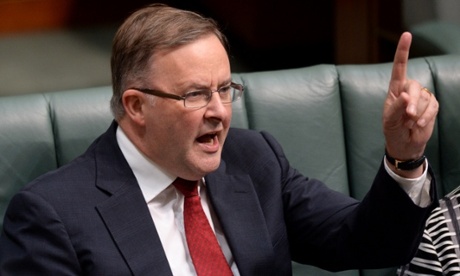Indonesia demands explanation from Australia over WikiLeaks-published court order

Tony Abbott and Susilo Bambang Yudhoyono in Indonesia in June. Photo: Ed Wray
relations by suppressing details of a sensitive court case in Victoria
appeared to have backfired, prompting Indonesian President Susilo
Bambang Yudhoyono to demand an explanation.
Apparently in response, the Australian government released an
extraordinary statement late on Thursday saying that the “Indonesian
President and the former president are not the subject” of court
proceedings which Australian media outlets are otherwise banned from
reporting.
A blanket suppression order prevents Fairfax Media and other
Australian outlets reporting the contents of the Victorian Supreme Court
case, an affidavit in the case, or even the suppression order itself.
The order was sought to protect the reputation of international leaders.
But the order was published on international site WikiLeaks, where it can be read.
After the document was uploaded, Dr Yuhoyono insisted that
Australia immediately clarify why his name had been mentioned in such a
context.
"I ask that Australia issue a statement that both [former
president] Megawati [Sukarnoputri]] and my names are unstained, and so
they do not defame other Indonesian officials. We want to hear directly
from Australia," Dr Yudhoyono said, as reported by news portal Viva.
He later took to Twitter to add to his comments.
“The Government of Australia should be completely open and
make transparent its law enforcement process and not cover it up”, the
president tweeted.
Another said: “The Government of Australia should not issue
policies or statements that may raise suspicion about people who are
outside Australia”.
It was on his Twitter account in November last year where Dr
Yudhoyono first made clear his displeasure at Mr Abbott’s responses to
the spying revelations.
Late on Thursday, the Department of Foreign Affairs put out a
statement headlined: “Suppression orders: Securency court proceedings”,
saying the case “names a large number of individuals” but that “the
naming of such figures in the orders does not imply wrongdoing on their
part”.
“The Australian Government obtained suppression orders to
prevent publication of information that could suggest the involvement in
corruption of specific senior political figures in the region, whether
in fact they were or not,” the statement says.
“The Government considers that the suppression orders remain
the best means for protecting the senior political figures from the risk
of unwarranted innuendo … The Government stresses that the Indonesian
President and the former President are not the subject of the Securency
proceedings.”
But the innuendo reached the ears of the Indonesian
President, who is already suspicious of the government over revelations
that, in 2007, Australia tapped his phone and the phones of his wife and
inner circle.
The revelation, and its mishandling by the Abbott government,
plunged relations between the two countries into turmoil and
negotiations over a “code of conduct” to govern such spying have been
under way since last December. The issue had been expected to be
resolved by next month.
But on Thursday Dr Yudhoyono said his Foreign Minister, Marty
Natalegawa, had been in contact with his ambassador in Australia, as
well as with Australia’s ambassador in Jakarta to discuss the latest
disruption to the relationship.
Dr Yudhoyono requested that the government of Tony Abbott
reveal to Indonesia as clearly as possible which officials were under
suspicion, both in Australia and in Indonesia.
“If there are elements of this case in Indonesia, for
example, please tell us who is involved … If law breaking is suspected,
what is the case? And if it does exist, please work with the Indonesian
corruption eradication commission (KPK),” Dr Yudhoyono said.
"Indonesia is now the midst of implementing an aggressive
campaign against corruption. If there are elements in Indonesia who are
considered to be engaged, please reveal who they are.”












